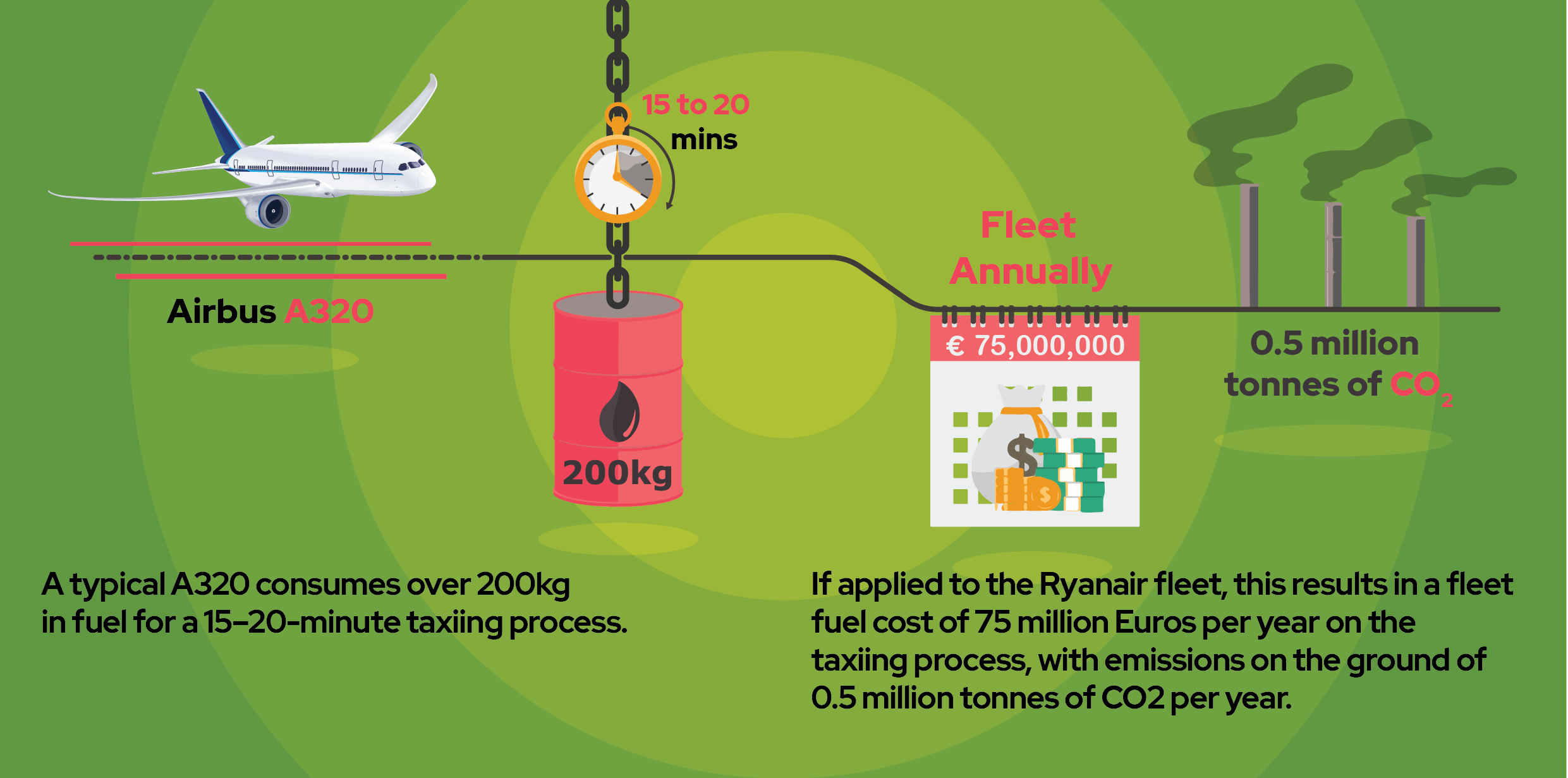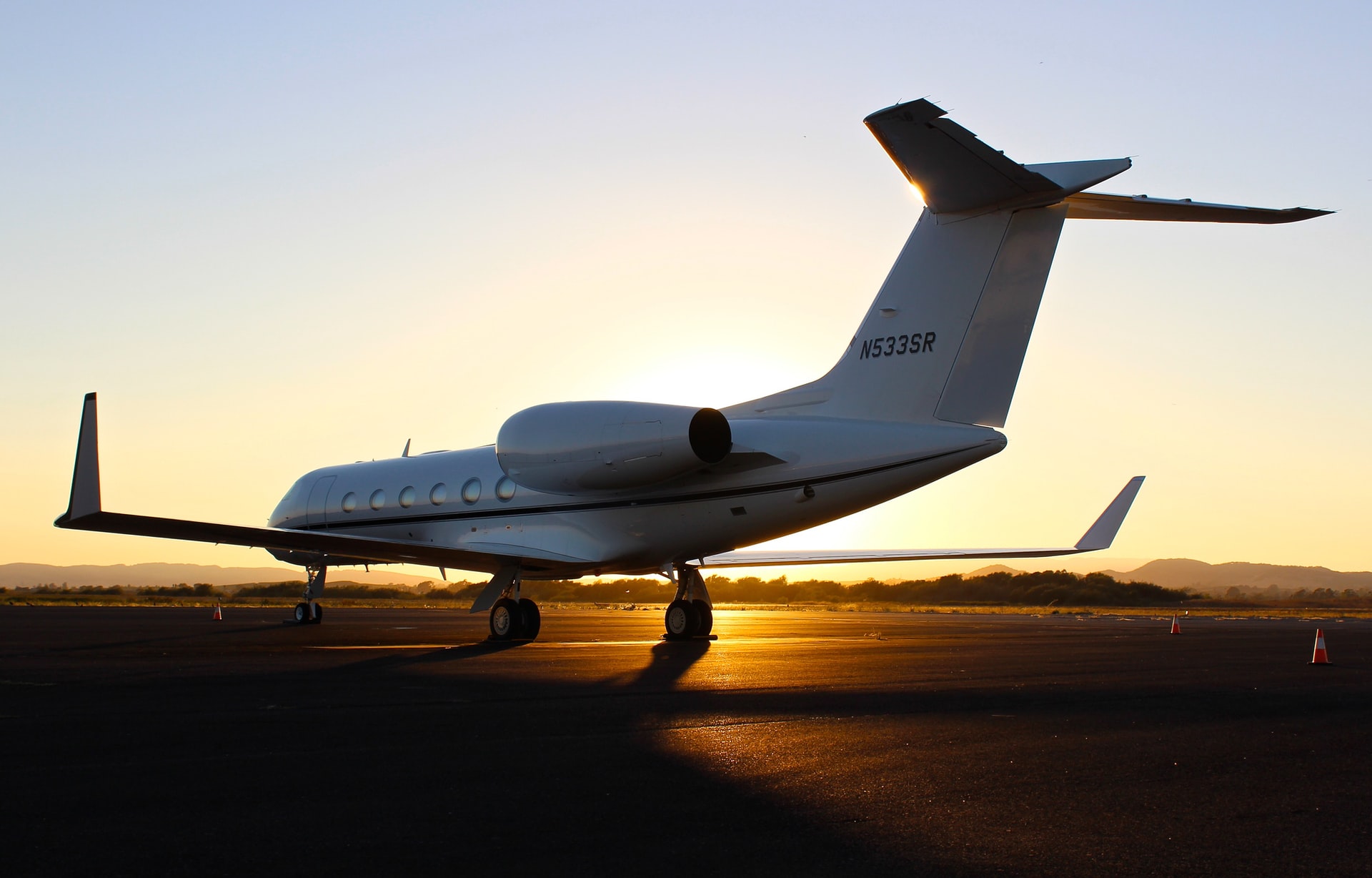Whether it’s your car or a Boeing 747, an engine uses a significant amount of fuel to start moving from a standstill. The KERSair Project, led by Dr Robert Camilleri (UM), is developing a technology to reduce aircraft plane emissions while taxiing.
Aviation has delivered worldwide social and economic benefits. This has come at a price. Aviation contributes to roughly 2% of all global emissions. However, pre-Covid-19, the industry experienced a growth rate of approximately 5% per annum. Despite the current slow-down, the industry has time and again shown resilience, and it should recover in a few years. The industry might take this period as an opportunity to clean up its act.
The Advisory Council for Aeronautics Research in Europe (ACARE) has set aggressive targets to reduce in-flight CO2 emissions by 75% and NOx emissions by 90% when compared to the year 2000. All aircraft ground movements should be emission-free. Reducing ground emissions is vital, as it is linked to life-threatening respiratory illnesses. As airports and cities continue to grow, space becomes more limited, heightening the problem.
Pre-Covid-19, short-haul flights dominated European aviation, with Ryanair and Easyjet commanding a combined fleet size of over 700 aircraft. Such flights are efficiently performed through regional jets and single-aisle, narrow-body aircraft such as the A320 and B737 aircraft.
The KERSair project (funded by the Fusion R&I Technology Development Programme) produced a techno-economic study that showed that airlines which employ quick turnaround times manage 3–5 flights daily for each aircraft. This strategy maximises aircraft use but increases fuel use and emissions. These aircraft also use more fuel while taxiing on the ground. A typical A320 consumes over 200kg in fuel for a 15–20-minute taxiing process. If applied to the Ryanair fleet, this results in a fleet fuel cost of 75 million Euros per year on the taxiing process, with emissions on the ground of 0.5 million tonnes of CO2 per year.

Many research teams are trying to solve this multi-million Euro problem. Some have attached electric motors to aircraft wheels, but this was found inefficient due to the electrical power needed. The KERSair project’s technology recovers the energy usually lost while braking to make aeroplanes much more efficient. The tech helps temporarily store the energy to be used for engine-less taxiing. The project has so far investigated mechanical and electrical energy storage systems and is currently analyzing their energy and power density to complete a typical taxiing cycle. The project aims to develop a proof of concept by the project’s end. To achieve the highest impact possible, the system has to be retrofittable with the existing fleet and independent of existing aircraft power systems. The project aims for a system weighing less than 200kg to avoid offsetting the environmental benefits achieved on the ground by higher in-flight emissions. The future breathes cleaner.
KERSair is a three-year research collaboration between the Institute of Aerospace Technologies, the Department of Industrial Electrical Power Conversion within the University of Malta, Medavia Ltd., and the University of Nottingham, UK. The project is led by Dr Robert Camilleri (UM).
KERS-air (R&I-2017-005-T) is financed by the Malta Council for Science & Technology, for and on behalf of the Foundation for Science and Technology, through the FUSION: R&I Technology Development Programme.
References
ACARE. (2020). Aviation in Europe: a vision for 2050 [Image]. Retrieved 27 October 2020, from http://www.cleansky.eu/sites/default/files/documents/acare-sria-citizen.pdf.
Our fleet | easyJet. Easyjet.com. Retrieved 27 October 2020, from https://www.easyjet.com/en/help/boarding-and-flying/our-fleet.
Ryanair Fleet | Ryanair’s Corporate Website. Corporate.ryanair.com. Retrieved 2 November 2020, from https://corporate.ryanair.com/ryanair-fleet/#:~:text=Ryanair%20operates%20a%20fleet%20of,grow%20traffic%20from%20142m%20customers.





Comments are closed for this article!